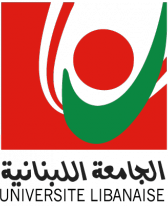Thèse soutenue de Dana AYOUB
Prise en charge de l’épilepsie chez l’enfant au liban : evaluation des facteurs affectant le contrôle des crises, la comorbidité psychiatrique, l’adhérence au traitement, et la qualité de vie
L’épilepsie est l’un des troubles neurologiques les plus fréquents chez l’enfant, touchant environ 1 % de la population pédiatrique mondiale. Elle se caractérise par des crises récurrentes et non provoquées résultant d’une activité neuronale anormale. Cette pathologie a un impact majeur sur le développement cognitif, psychologique et social, contribuant à des troubles d’apprentissage, des déficits neurodéveloppementaux et une altération de la qualité de vie. Malgré les avancées dans le traitement par antiépileptiques (AE), environ un tiers des enfants épileptiques ne parviennent pas à un contrôle efficace des crises et développent une épilepsie pharmacorésistante (EPR). Cette absence de contrôle augmente le risque de déficience neurologique et de comorbidités psychiatriques, nécessitant une prise en charge multidisciplinaire.
La prédiction précoce du contrôle des crises reste un défi clinique majeur. Certains syndromes épileptiques ont un pronostic bien établi, comme les épilepsies focales auto-limitantes, qui évoluent favorablement avec l’âge, tandis que les encéphalopathies épileptiques et développementales sont associées à un mauvais pronostic. Toutefois, l’identification syndromique repose sur une histoire clinique détaillée et des enregistrements EEG multiples, ce qui rend la prédiction précoce difficile. Il est donc essentiel d’identifier des facteurs cliniques précoces permettant d’anticiper l’évolution des crises, indépendamment du diagnostic syndromique.
Cette étude vise à analyser les résultats thérapeutiques et la prévalence des comorbidités psychiatriques chez les enfants nouvellement diagnostiqués épileptiques.
Objectifs spécifiques :
-
Objectif 1 : Identifier les facteurs prédictifs précoces de la rémission des crises en fonction des caractéristiques cliniques initiales, des résultats EEG et des images cérébrales par IRM dans une cohorte de grande envergure.
-
Objectif 2 : Déterminer les facteurs associés à l’épilepsie pharmacorésistante selon les différents syndromes épileptiques de l’enfance.
-
Objectif 3 : Évaluer la prévalence des troubles psychiatriques et leurs déterminants chez les enfants épileptiques au Liban.
L’étude adopte une approche prospective afin de minimiser les biais de recrutement et d’optimiser la robustesse des résultats. L’étude met l’accent sur l’identification de facteurs prédictifs précoces disponibles dès la première consultation, avec pour objectif de développer un algorithme décisionnel permettant d’identifier les enfants à risque de contrôle insuffisant des crises. Afin d’examiner les facteurs prédictifs de la pharmacorésistance, les patients seront stratifiés selon leur syndrome épileptique et une analyse de sous-groupes sera réalisée. Nous postulons que ces facteurs varient en fonction des caractéristiques cliniques propres à chaque syndrome.
Outre la prise en charge des crises, la gestion des comorbidités associées constitue un enjeu fondamental dans le suivi des enfants épileptiques. Cette étude vise également à évaluer la prévalence des troubles psychiatriques chez les enfants épileptiques au Liban, une problématique encore peu explorée dans cette région. Nous émettons l’hypothèse que ces comorbidités sont largement sous-diagnostiquées et sous-traitées. Une revue des dossiers médicaux sera effectuée afin d’établir des corrélations entre les diagnostics psychiatriques et diverses variables cliniques, notamment le contrôle des crises.
Mots clés : Epilepsie, AEDs, Facteurs de risque, Enfants, Liban
Soutenue publiquement le 08 décembre 2023

Dana Ayoub
Doctorante dana.ayoub@unilim.fr
Sous la direction de :
Farid BOUMEDIENE
Directeur de thèse IGR HDR
Jeremy JOST
Co-direction PU-PH
Co-tutelle :

Amal AL-HAJJE
Directrice de thèse PharmD, PhD, PU-PH

Pascale SALAMEH
Co-direction PharmD, MPH, PhD, PUPH
 Articles –
Articles –  Colloques –
Colloques – Posters
Posters




